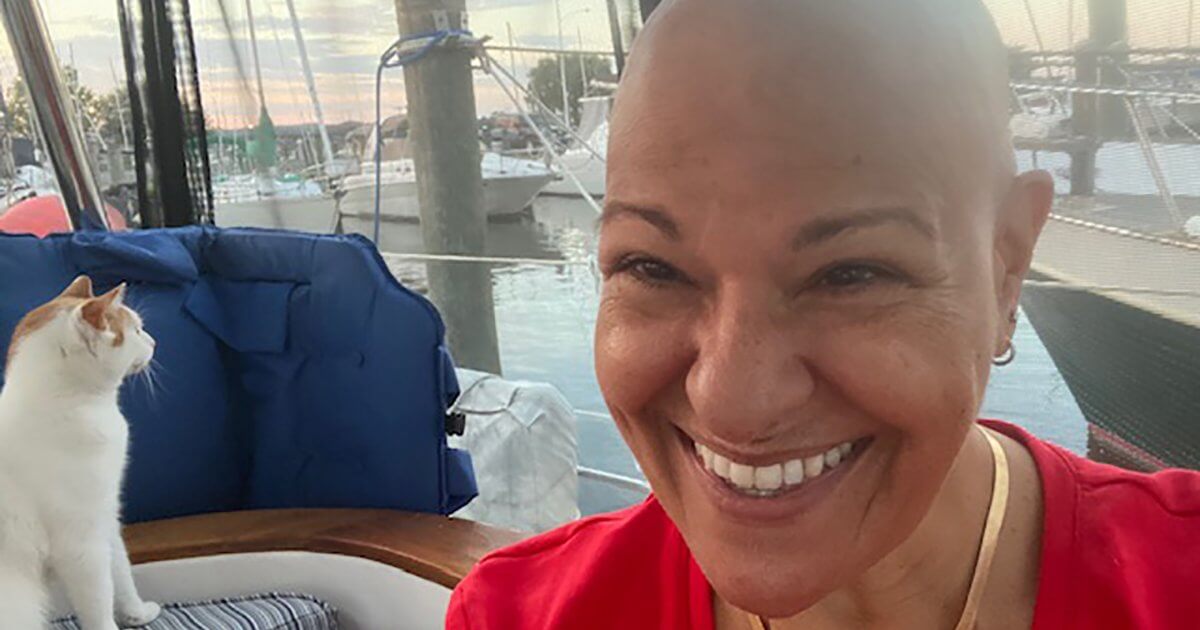Antonella Nester To Begin Radiation Treatment
- Beloved former QVC host Antonella Nester, 57, took to Facebook and YouTube on Thursday to share with fans the next steps she's taking in her cancer battle.
- In November 2020, she was diagnosed with non-Hodgkin lymphoma and later with breast cancer. She is now about to begin radiation treatments on Monday.
- Dr. Connie Lehman, a director of the breast imaging clinic at Mass General Hospital in Boston, tells SurvivorNet that it's very important for women to get a mammogram every year, especially if you haven't yet gone through menopause. Monthly self breast exams are also very important.
"Me and (husband) Chris … just got back from Philadelphia because they had to draw on me," she said in the video. "Now I have like, four tattoos!"
Read More"I had an allergic reaction to something and my lips ballooned up, and my eyes," she says. "It's obvious I won't look good with lip implants, which is always questionable for me because I feel like I have chicken lips; there's nothing there!" But, "Everything is OK," she adds.
She says that the night the reaction happened, she was eating at a restaurant, and there was food there she hadn't eaten before. She did eat crab, she says in the video, but "If I am allergic to crabs, kill me now! I just can't."
Nester's Cancer Diagnosis and Ongoing Battle
Nester's world turned upside down when she was fired from her job as a QVC host in July 2020 along with many other popular hosts on the television network. But the bad news didn't stop there. In November 2020, she was diagnosed with non-Hodgkin lymphoma and doctors removed a lump from her left arm.
"When it rains … it pours!!" she wrote on Facebook announcing the news. "Just got diagnosed with a tumor in my left arm. Scheduling surgery and will know more after that … grrrrrr … I'm falling behind in my life. People are asking if I'm worried, I'm really not. If I worry or don't worry … it's the same out come. I'll keep you posted. Stay safe and stay happy!! Love you guys!!"
But when doctors removed that lump, they found another one in her breast. Once doctors examined that lump, Nester was diagnosed with breast cancer and was told she needed to go through treatment. And that treatment is about to start.
On April 18, she shared another video on Facebook to give fans an update about her treatment progress and plan. She said that during a visit with her oncologist, she was told her prognosis looks rather promising, and she would be going through chemo for three months. The chemotherapy treatments began in May. She and her husband Chris then had to sell their home and possessions in order to pay for their medical bills. (Her husband had also lost his job, then he had a heart attack.)
The couple ended up moving onto a 42-foot sailboat in the meantime and sailed to Philadelphia, where she was set to start treatment. She received treatment through a port, which is an access area implanted under the skin of the chest. And right now, Nester's prognosis seems to remain promising.
"We also saw the cardiologist for him (Chris) today," Nester said in her Facebook video Thursday. "We got blood work done; my white count is back to normal. Everything is looking like rainbows and sunshine!"
In a July video posted to YouTube, Nester announced that she had completed her second round of chemotherapy and had one more to go. She admitted that the second round was incredibly tough, but through it all, she has remained positive.
When Should I Get a Mammogram?
Mammograms Are Critical
The American Cancer Society says that women have the option of beginning regular mammograms at the age of 40 in order to detect breast cancer and properly diagnosis the disease. But by the time they reach 45, they should get a mammogram every year. Once you turn 55, women can switch to having a mammogram once every two years, or continue with yearly screenings.
In addition to getting mammograms, self breast exams are also extremely important; they should be done every month, Dr. Elizabeth Comen, a medical oncologist at Memorial Sloan Kettering Cancer Center in New York City, tells SurvivorNet.
“When we think about prevention, breast cancer prevention and awareness, the first step is that women need to feel comfortable with their breasts and that they know what their breasts feel like normally,” she says. “For some women, that may mean going to their doctor and walking through what a self-breast exam might feel like so that they know what normal breast tissue feels like, so that if they do feel anything abnormal, whether it’s a lump or discharge from the nipple, that they know what to ask and what to look for.”
“Some women have what’s called fibrocystic breasts, meaning they have very lumpy, bumpy breasts, and it’s hard for them to know what’s normal and what’s not.”
Dr. Connie Lehman, a director of the breast imaging clinic at Mass General Hospital in Boston, tells SurvivorNet that it's very important for women to get a mammogram every year, especially if you haven't yet gone through menopause.
"We know that cancers grow more rapidly in our younger patients, and having that annual mammogram can be lifesaving," Dr. Lehman says. "After menopause, it may be perfectly acceptable to reduce that frequency to every two years."
"I want to be completely clear: If you are between 50 and 74 and you have not had a mammogram in the last two years, you are overdue. Please get a mammogram."
Getting to Know Your Breasts with Self-Exams
Learn more about SurvivorNet's rigorous medical review process.


